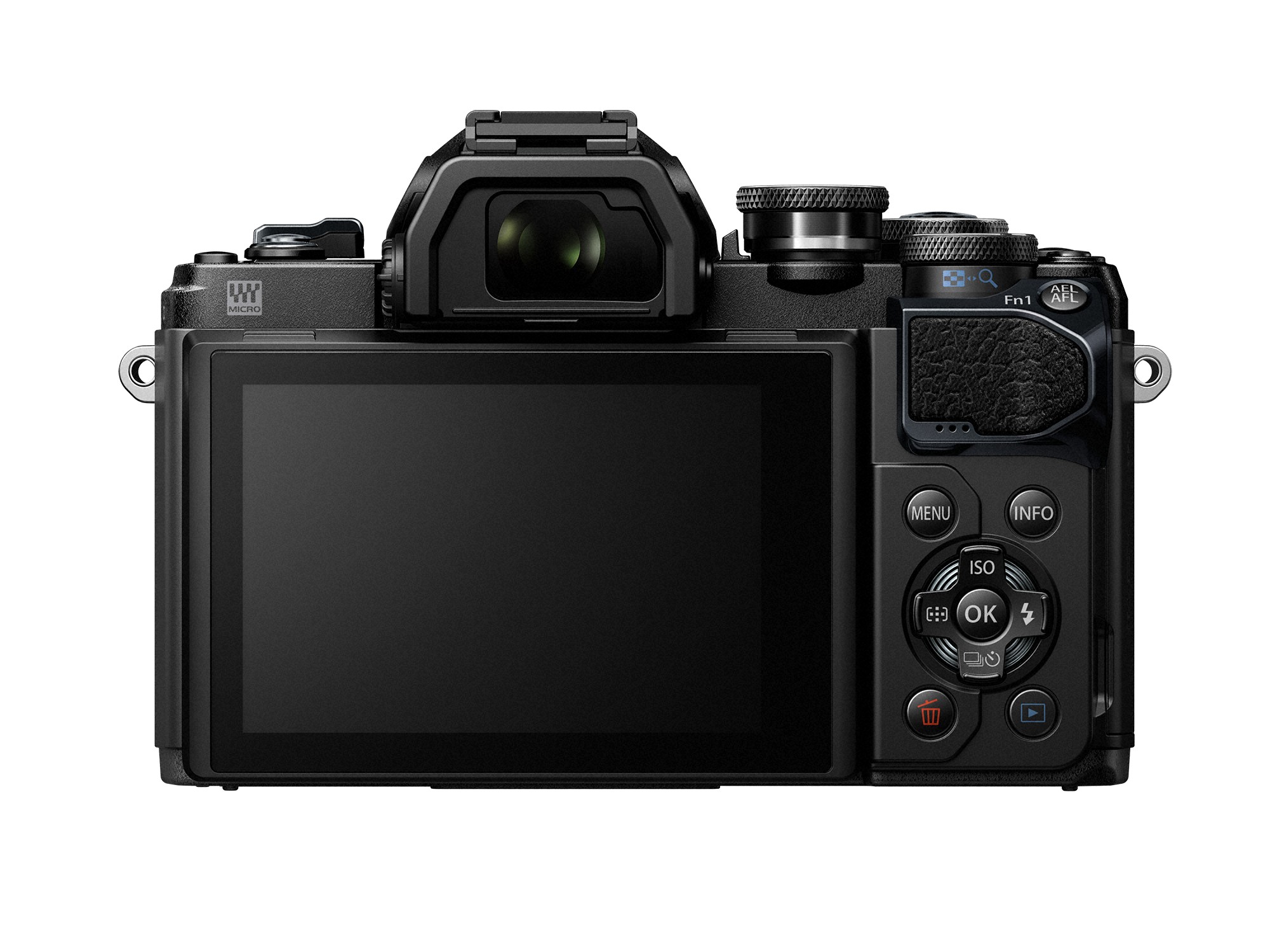Olympus is pitching this to folks looking to move up from a smartphone, a common marketing tactic for budget mirrorless or DSLRs these days. As such, it has four shooting assist modes for beginners (auto, scene, advanced photo and art filter).
It's not lacking a lot of features for pros, though, with 200-25,600 ISO, 4.6 fps shooting at the highest quality level (8.6 fps at lower quality), 121-point contrast AF, a 1/16,000th electronic shutter, silent mode and UHS-II card support. It has a built-in flash and 3-inch 1,040K dot touchscreen you can use to focus on specific parts of a scene.

The EM-10 III can shoot 4K video (3,840 x 2,160) at 30p max, with a data rate of 102 Mbps. 60fps is possible at full HD, and 120 fps at 720p. Olympus notes that you can attach a stereo microphone, likely by the $50 SEMA-1 microphone adapter, as the EM-10 III doesn't have a microphone port. Autofocus and image stabilization are supported for movie modes.
As far as drawbacks, the EM-10 III does have a smaller sensor than the M100 and Sony's aging A6000, both in megapixels (16 versus around 24) and size (Micro Four Thirds versus APS-C). Despite the reasonably high ISO, Olympus doesn't have a great reputation for low-light shooting, either, especially compared to Sony. It's also limited to USB 2.0 and lacking Bluetooth and NFC, which is kind of inexcusable if it's trying to tempt the social and selfie set. (Also, OM-D EM-2 Mark III is still a lousy camera name.)
Nevertheless, if were a beginner looking to step up, I'd be mighty tempted by the Olympus OM-D EM-10 III for its 4K video, EVF, 5-axis stabilization and, yes, that pretty body. You can pick one up in late September for $650 (body only) or $800 with an M.Zuiko 14-42mm kit lens.
Source: Olympus gives its entry-level mirrorless camera a 4K upgrade
No comments:
Post a Comment